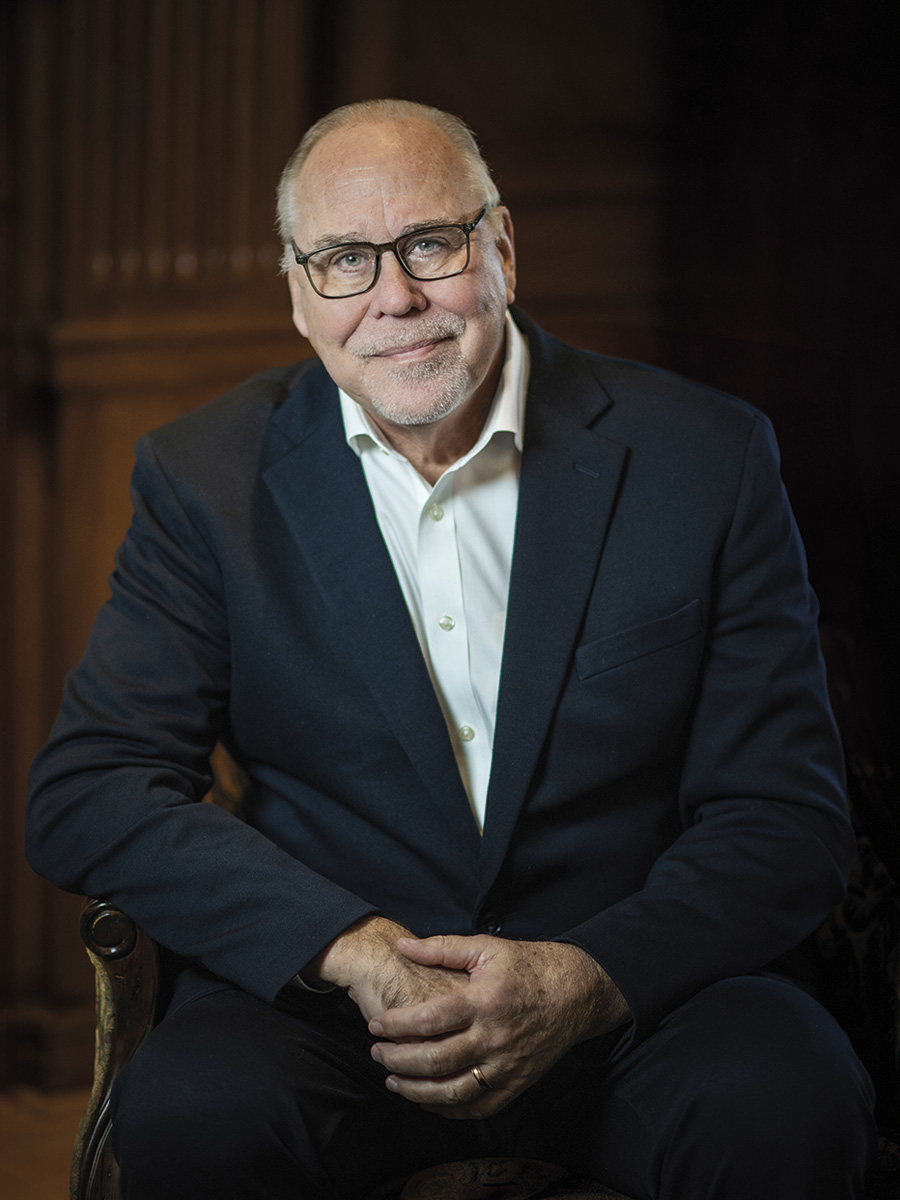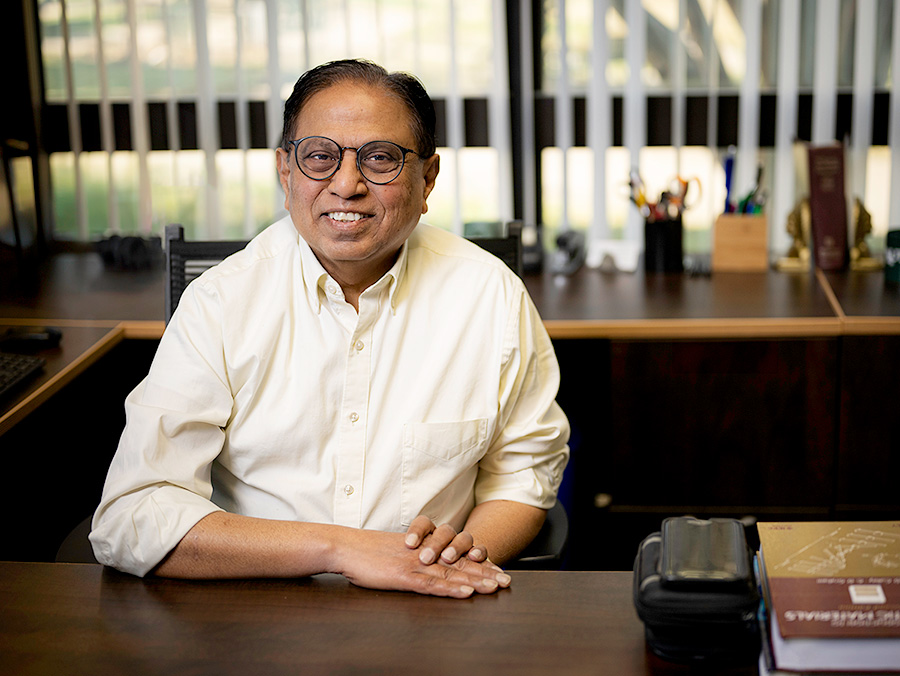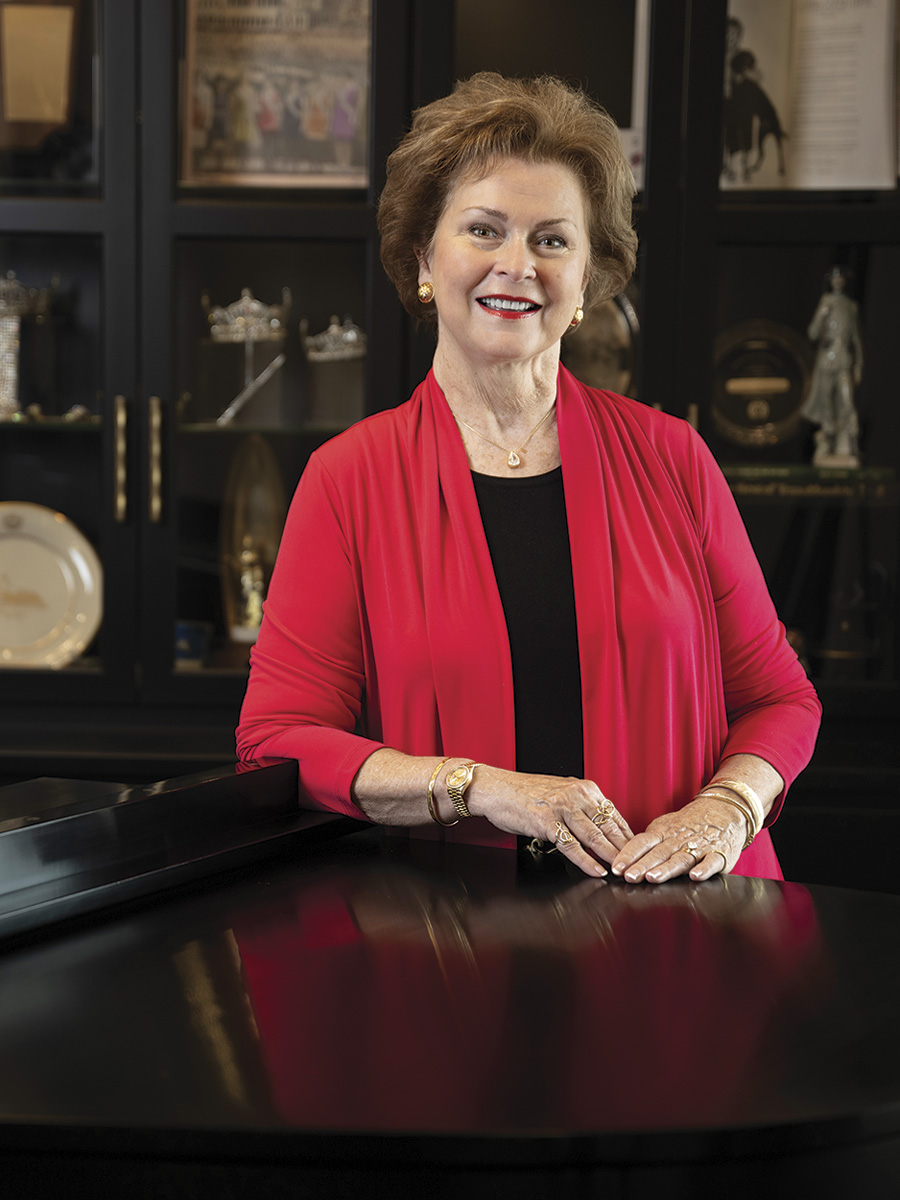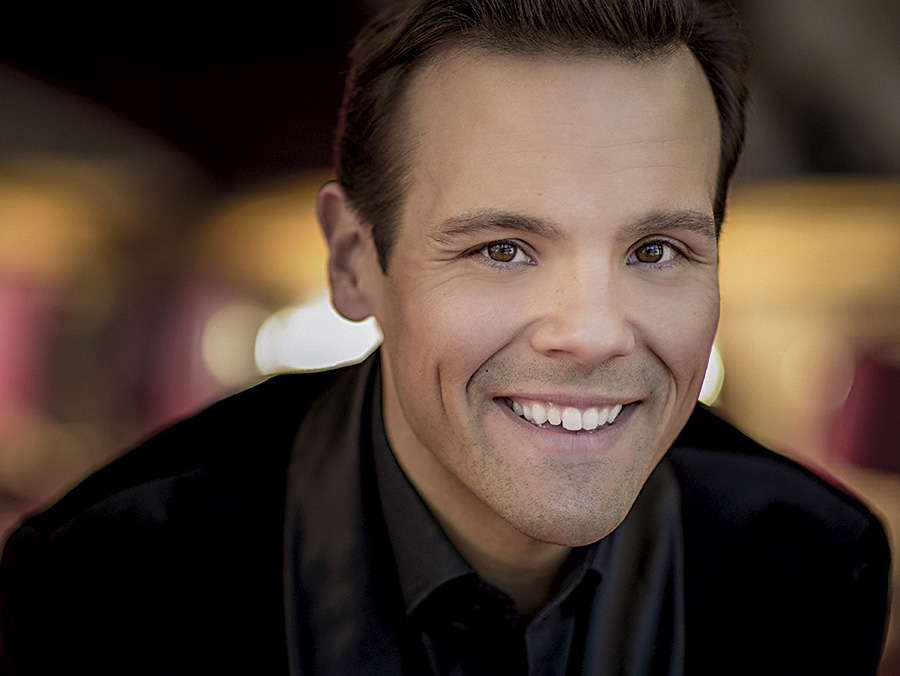Learning to Fail
On the road to success, it's not uncommon to stumble along the way. Members of the
UNT community share what they learned from those challenges.
Photography by: Ahna Hubnick
March 29, 2024
When he was a child, UNT President Neal Smatresk wanted to be a scientist. But, after he earned his degree in biology from Gettysburg College, he was unsure of what field to pursue and his journey took many different directions.
He was a photographer and a bartender. He worked in a model railroad hobby shop and an apple-packing plant. He climbed and cut trees. He worked in construction. Then came the stop on his journey that would change his life -- an electrifying job as quality control manager at a pickle factory.

Neal Smatresk's academic specialty is biology and zoology.
"I had a near-death experience there," he says. "After that, I knew it was time to get serious and pursue a path. That accident was a revelation."
He decided to further his education and obtained a master's and doctoral degree. He then began his career in biology in 1982 as a professor at the University of Texas at Arlington, where he quickly realized higher education institutions needed to increase their focus on preparing students for careers.
His resolve to make that happen led to another set of failures. As a dean at UTA, vice chancellor at the University of Hawaii at Manoa and president of the University of Nevada, Las Vegas, he tried, unsuccessfully, to implement campus-wide career readiness initiatives. Those never took off.
Cue his arrival in Denton in 2014. As president of UNT, Smatresk made career readiness for students a top priority, investing in a career center, coaches and classes.
As he looks back upon the failures that led to his achievements, he says, "If you really believe in something and you know it's right, each failure is just another step toward success."
-- Christiana Flores
Valuable Experiment

Narendra Dahotre is a National Academy of Inventors fellow for his lifetime research.
Narendra Dahotre recalls being disheartened with grant proposal denials as an early career researcher. He'd be glum when lab results didn't go as expected either. Failure by its most basic definition is inherent in research, but Dahotre doesn't see it as disappointment any longer.
"Even if an outcome isn't what you wanted, there's learning value in that. It's not failure," says Dahotre, a Regents Professor in materials science and engineering and associate vice president for UNT's Center for Agile and Adaptive Additive Manufacturing, which is developing advanced material components for a range of industries.
Even if an outcome isn't what you wanted, there's learning value in that. It's not
failure.
Narendra Dahotre
With 18 issued U.S. patents, more than 300 published journal articles and contributions as an author or editor on 17 books, Dahotre has made significant contributions to the understanding and engineering of laser materials in processing and manufacturing. At UNT, his efforts have led to increased faculty and research funding in the Department of Materials Science and Engineering as chair from 2010 to 2013, and a strengthening of UNT's overall research enterprise through past Division of Research and Innovation leadership positions. For CAAAM alone, Dahotre helped UNT secure $30 million in funding from the Texas Legislature. There have been naysayers and obstacles that could've held him back though.
"I tell my students to be patient, hardworking, reliable and to take rejection as part of the process," he says. "Above all, you can't give up, and that's all true in life as well."
-- Heather Noel
Stumbling Before Success

While a student, Shirley Cothran Barret ('73, '74 M.Ed.) was a member of the Green
Jackets and helped start the Omicron sorority, now known as Pi Beta Phi.
As a student at North Texas, Shirley Cothran Barret ('73, '74 M.Ed.) was approached by members of the Denton Jaycees civic organization who encouraged her to enter a local pageant, telling her it offered valuable scholarship money.
She competed in two Miss Denton pageants, but didn't win.
"You have to sometimes stumble to be successful," she says. "It worked out that way for me."
She switched pageant cities, winning Miss Haltom-Richland, in the suburbs north of Fort Worth, in 1974. After she won that title, pageant organizers prepared her well for the next step. She perfected her talent -- playing the flute -- and worked hard to get ready for other aspects of the pageant.
In a matter of months, she was named Miss Texas and crowned Miss America.
After she finished her reign as Miss America, Barret earned her doctoral degree in education at Texas Woman's University. She studied for her degree while traveling and finished it by age 26.
"When I do something, it's pretty much 100 percent," she says.
Barret pursued a successful career as a motivational speaker. She wanted to teach at the college level, but ultimately focused her time on raising her family. Her original goal in college was to teach at public school.
"But my life took a trajectory that I never even in my wildest dreams thought that I'd be doing. It's been a great life. I've been blessed over and over and over again many times."
Read more about Barret's time as Miss America.
-- Jessica DeLeón
Good and Bad

KeAyla Dove set the shot put record at the American Athletic Conference Indoor Track
and Field Championships in February and is ranked third in the nation.
Before each track and field meet, UNT senior KeAyla Dove prays with her grandfather and listens to worship music. After the meet, no matter the outcome, she gives her thanks to God.
At age 10, Dove discovered her natural ability for shot put, placing third in her first meet with little practice. As a middle and high school athlete, she continued to outperform her peers.
At UNT, the applied arts and sciences major set campus and Conference USA records -- and qualified for the 2024 Olympic Trials, for which she is preparing to compete in June.
However, after a disappointing performance at the 2023 NCAA Division I Track and Field Championship, she was visibly upset.
"You can see in some of the photos, I was not happy. I was distraught and crying," she says.

After taking time to reflect and pray, she realized she couldn't let that one moment define her.
"I can't do this without God, and I'm going to trust Him. I thought about a scripture, Isaiah 43:18 -- 'Forget the former things, do not dwell on the past' -- and how God uses everything for good."
Good did come from the loss, as Dove's performance secured a spot in the USA Nationals to compete as a pro. Amid failure, she remembers she's still writing her story.
"The KeAyla Dove story has good and bad, and at the end of the day, how did I overcome the bad and how did I handle the good?"
-- Christiana Flores
'Failure is Necessary'

David Portillo ('05 M.M.) has performed around the world and with such stars as Renee
Fleming. (Photo by Simon Pauly).
David Portillo ('05 M.M.) earned a 2024 Grammy Award nomination for best opera recording in the Boston Modern Orchestra Project's production of The Lord of Cries. He also received the Medal of Excellence from the Sphinx Organization, which honors Black and Latinx classical artists. Read more about his career.
"Rejection and failure to me are completely different because failure is necessary; you learn from it, and learn to overcome it. Rejection comes from someone else, and this is nothing that you can control.
I learned that I can't take things too personally; like jobs that I don't get or competitions I didn't win -- they're decisions made by others.
There might have been somebody else whom they preferred, or somebody else maybe sang better. Not everyone will like my voice -- it's a subjective artform.
"The things that I can control are overcoming my failures. For example, I know whether or not I felt confident in my preparation. And can tell if I was not vocally at an optimum in performance.
If I don't feel comfortable that I had a balanced, efficient performance, then I can use technique and resource to overcome those failures, and I learn from that. And then I have to say, 'Next time, I'm going to do that better.' I know that I'll be more prepared."
-- Jessica DeLeón
'Failure is a Construct'

As a senior, Cara Santa Maria ('04, '07 M.S.) worked for a clinical neuropsychologist
completing assessments and research, which inspired her to get a graduate degree in
neurobiology.
Cara Santa Maria ('04, '07 M.S.) is an award-winning journalist, science communicator, television personality and podcaster. She recently earned her Ph.D. in clinical psychology with a concentration in social justice and diversity from Fielding Graduate University. Listen to her speak about podcasting.
"I think that 'failure' is sort of the story of my life. I almost dropped out of high school and the only reason I started at a community college prior to going to UNT was because my guidance counselor at my high school negotiated with me. That was an almost-failure that we turned into something really positive and it launched me into an academic career that I might not have otherwise continued.
"I dropped out of my first Ph.D. program, which a lot of people might consider failure, but it allowed me to have a really thriving career in television. And then COVID happened and my TV jobs dried up, but you know what? That allowed me to focus on my dissertation and I just got my Ph.D. and I'm 40.
Some people would consider that failure, but for me that's a huge accomplishment.
"Failure is a construct, right?
It's a very relative term and so much about 'failure' has to do with perspective, and what appears to be failure to some, I see as major successes in my life."
-- Scott Brown